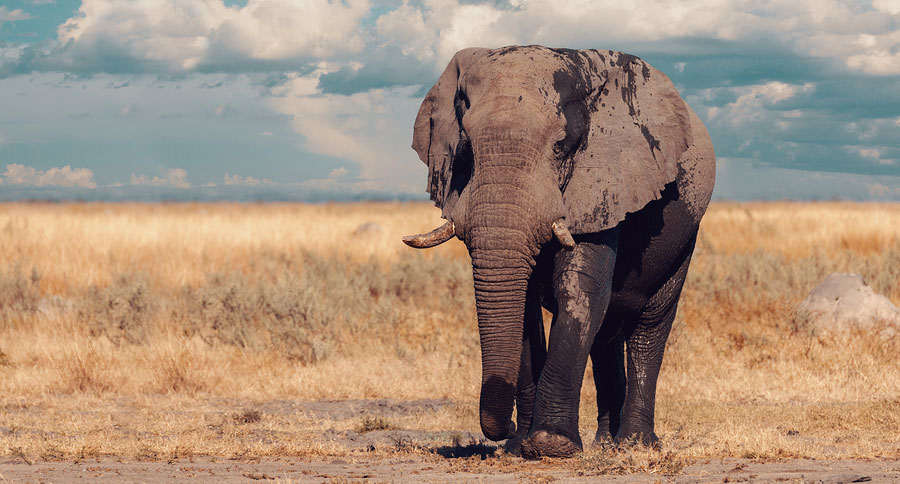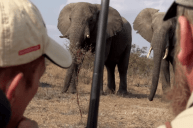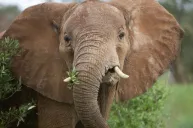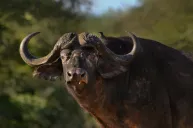The decision has already been met with a great deal of backlash.
For the first time since 2014, the government of Botswana will allow hunters to harvest savanna elephants, according to a statement issued on May 22 by the Ministry of Environment, Natural Resource Conservation and Tourism.
The original suspension came on the heels of what was a 30-percent decline in elephant numbers across the entire continent between 2007 and 2014, according to an aerial census conducted by Elephants Without Borders.
Botswana is home to roughly a third of Africa's total savanna elephant population, featuring more than 130,000 elephants.
The statement listed a number of reasons the Cabinet Sub Committee on Hunting Ban and Social Dialogue decided to lift the ban, most of which highlighted nuisances elephants cause for locals.
- The number and high levels of human-elephant conflict and the consequent impact on livelihoods was increasing.
- Predators appear to have increased and were causing a lot of damage, as they kill livestock in large numbers.
- There is a negative impact of the hunting suspension on livelihoods, particularly for community-based organizations that were previously benefiting from consumptive utilization.
- The lack of capacity within the Department of Wildlife and National Parks leads to long response time to problem animal control reports.
- The general consensus from those consulted was that the hunting ban should be lifted.
In an interview with National Geographic back in February, Elephants Without Borders Director Mike Chase weighed in on the proposed legislation, sympathizing with both sides of the controversy.
"We can have a sustainable quota, which will have negligible impact on the population," Chase said. "But you have to weigh that up and consider the international backlash...and how that may undermine our economy, our jobs and our reputation for being at the forefront of conservation.
"Sharing their lives with a five-ton animal that threatens their lives, destroys their crops, damages their properties—I share their anguish. When you've tried all kinds of alternatives...and they're still dangerous, the animal has to be destroyed. At least the communities should be able to benefit by letting a hunter come in and pay to do it."
The move has unsurprisingly received a stampede of resistance, as most of the opposition believes the decision was completely political. Many, including former President Ian Khama, believe officials made their decision solely to sway rural voters with an October election only months away.
However, the Ministry stressed it would do its best to take all parties into consideration.
"The Ministry would like to reiterate that it will work with all stakeholders to ensure that re-instatement of hunting is done in an orderly and ethical manner, and in accordance with the Wildlife Conservation and National Parks Act and the Wildlife Conservation and National Parks (Hunting and Licensing) Regulations," the statement reads.
NEXT: A HUNTER'S OPEN LETTER TO ANTI-HUNTING ACTIVISTS
WATCH




